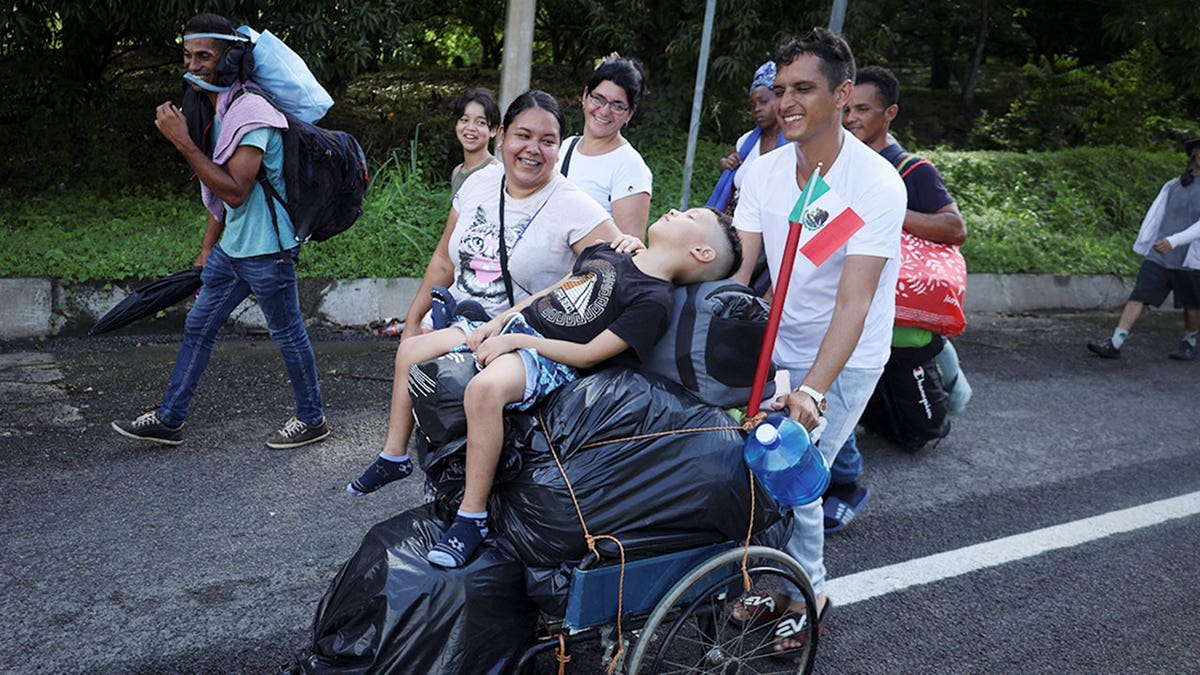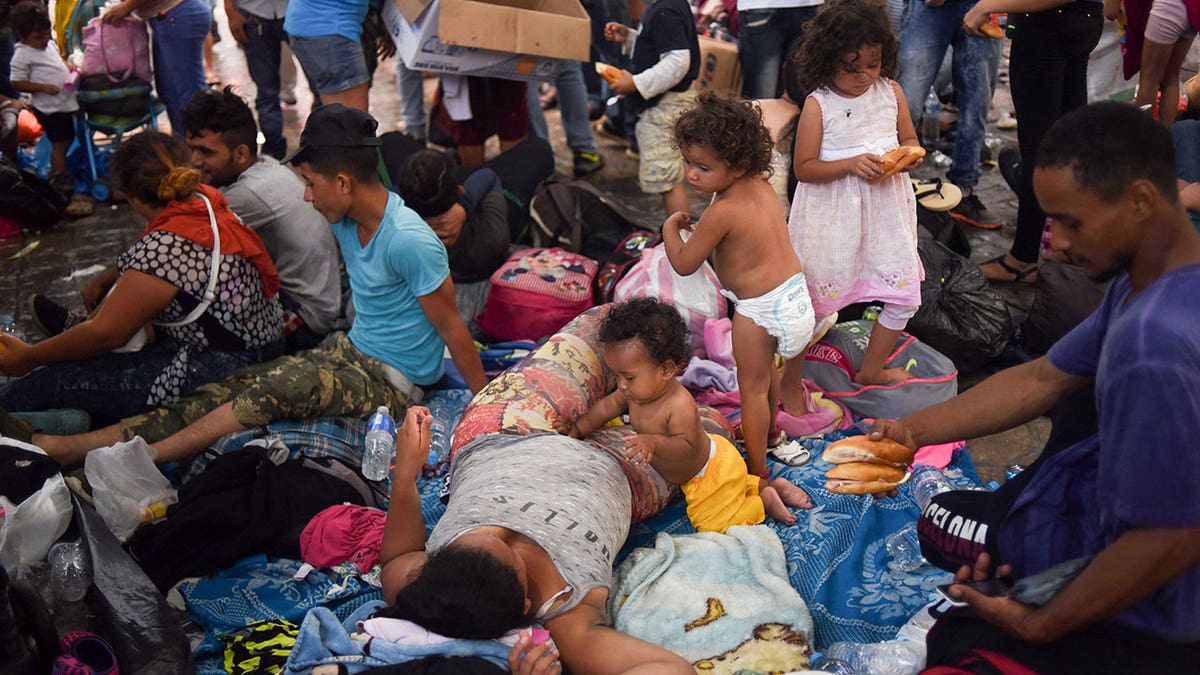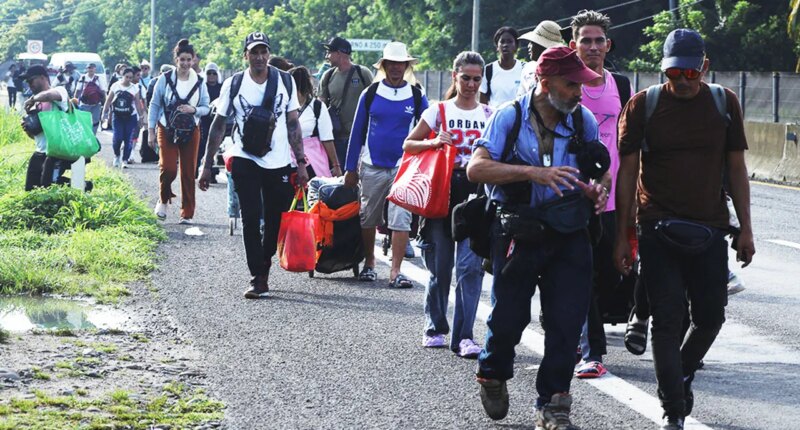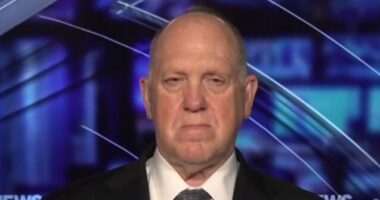Share this @internewscast.com
A caravan of approximately 1,200 Cuban migrants is making its way north from Tapachula, a city in southern Mexico, in search of better economic prospects. The group’s intended destination is Mexico City, not the U.S. border.
The destination of the caravan signals a stark shift in regional trends as President Donald Trump’s strict immigration policies take hold.
Departing earlier this month, the caravan is set for a journey of several weeks as they aim to find higher-paying jobs in the capital rather than in Mexico’s less developed southern regions.

Migrants on the outskirts of Tapachula, Mexico, Oct. 1, 2025. (Reuters/Damian Sanchez)
“Why would I want to go to the United States? They hate us there,” expressed a Cuban woman traveling with her young daughter and teenage son.
Immigration to the U.S. has significantly dropped, especially during Trump’s term, making the decision of these Cuban migrants to stay in Mexico noteworthy despite the established Cuban communities in U.S. cities like Florida and New York.
Elaine Dezenski, senior director at the Center on Economic and Financial Power at the Foundation for Defense of Democracies, noted to Fox News Digital that it’s uncertain if this trend will continue.
“The International Organization for Migration indicates that around 50% of surveyed migrants across Mexico in mid-2025 considered Mexico their destination, a notable increase from less than 25% in late 2024,” she explained. “This reflects how U.S. border policies are impacting migrant decisions, with more opting for asylum and work permits in Mexico.”

Honduran migrants taking part in a caravan heading to the U.S. rest in Tapachula, Chiapas state, Mexico, on Oct. 21, 2018. (Johan Ordonez/AFP via Getty Images)
In the months since Trump returned to the top job, encounters on the southern border reported by Customs and Border Protection have drastically fallen compared to rates seen in years past.
Earlier this year, the Migration Policy Institute noted that monthly southern border encounters were on par with rates not seen since the 1960s.
Dezenski warned that even though the control of undocumented migration into the U.S. will be championed by some as a positive adjustment when it comes to border security, there are “serious conversations” that need to be had about the role immigration plays in maintaining a healthy economy.
“Both Mexico and the U.S. are experiencing labor shortages in key sectors. While uncontrolled, undocumented immigration is not a solution, the lack of comprehensive immigration reform in the U.S. risks leaving many jobs unfilled – particularly in industries that rely heavily on migrant labor, such as agriculture,” she said. “Today, immigration reform is often equated with border security.
“However, we also need a serious conversation about the essential skills and labor our economies require and the role immigration plays in sustaining long-term economic health,” Dezenski said.

















